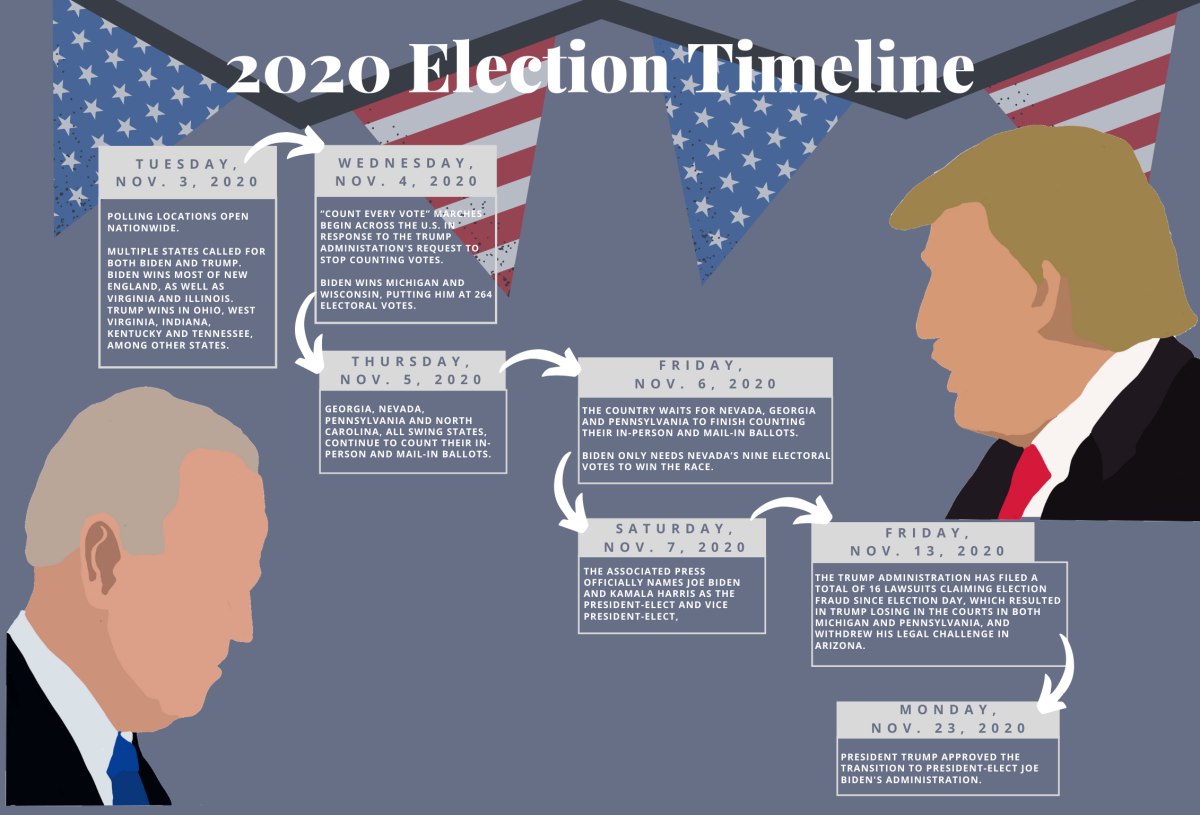Since last week, U.S. President Donald Trump repeatedly declined to promise a peaceful transfer of power following a potential defeat in November. On Sept. 24, President Trump said in a White House press briefing, “We want to make sure the election is honest, and I’m not sure that it can be. I don’t know that it can be, with this whole situation, unsolicited ballots.”
President Trump has escalated his rhetoric about Democrats trying to “steal the election” in the same way he called it “rigged” in 2016. The big difference is this time, President Trump has the presidency to lose. While many in the Republican Party were able to brush off his past comments, these recent repeated denials prompted condemnation from his own party.
Also on Sept. 24, the Republican-controlled Senate unanimously passed a resolution “reaffirming the Senate’s commitment to the orderly and peaceful transfer of power called for in the Constitutions of the United States.” Without the Senate, which has the power to convict the president after a House impeachment, there is no way President Trump could stay in power without Democratic support.
As Sen. Mitt Romney, a Republican from Utah, commented, “Fundamental to democracy is the peaceful transition of power; without that, there is Belarus. Any suggestion that a president might not respect this Constitutional guarantee is both unthinkable and unacceptable.”
For almost every American, the idea that any president would want to supplant democracy and install themselves permanently, like Belarus’ dictator, is unthinkable and un-American.
However, President Trump’s seemingly irrational hatred of mail-in ballots isn’t completely unfounded. Recently the FBI announced “potential issues” with nine military ballots in one county of Pennsylvania. While still under investigation, President Trump himself and his campaign declared it as evidence of mail-in voting fraud and alleged problems with mail-in ballots. President Trump likes to grab onto small yet “real” examples of “voting fraud” to try to prove a broader trend, when in fact, they do not.
Still, if the election is very close or ballots are disputed, both campaigns are ready to start a massive legal battle. The U.S. Supreme Court case Bush vs. Gore can be seen as a precedent, where the justices determined how Florida’s election results could be counted, which handed former U.S. President George W. Bush the victory on Dec. 12, 2000. Knowing this, we should all expect the possibility of a contested election in November.
A focus on Pennsylvania is also extremely important, as the state will be critical in this election. So much so that the polling site FiveThirtyEight gives President Trump an 84% chance of winning by carrying the state and Democratic presidential nominee Joe Biden a 96% chance.
The Republican Party has already begun a legal contingency plan for Pennsylvania. Lawrence Tabas, the Pennsylvania Republican Party’s chairman, told The Atlantic, “I’ve mentioned it to [the Republican Party], and I hope they’re thinking about it too, but [direct appointment of election].”
Basically, if President Trump loses, the Pennsylvania Republican-controlled legislature could claim voter irregularities and give President Trump the electoral votes themselves, a completely constitutional, but unprecedented maneuver. Again, the only parallels come from the contested election of 2000, where Florida’s electors for Bush and former presidential nominee Al Gore almost did the same thing before Gore conceded.
Pragmatically, getting mail-in ballots thrown out would be great for President Trump’s campaign, with polls finding that 60% of Democrats in Georgia are planning to vote by mail while only 28% of Republicans are likely to vote by mail, giving President Trump more political reasons to try to get many of these ballots thrown out.
Democrats reacted to these heavy handed tactics with incredulity. Biden told reporters on Sept. 23,“What country are we in? I’m being facetious.…Look, he says the most irrational things. I don’t know what to say.”
My final word of warning: while I personally trust the long history of American elections and mail-in ballots, there is a risk of increased complications and voter suppression because of how mail-in ballots are politicized.
Many swing states like Pennsylvania are allowing ballots to arrive days after the election, so election results may be delayed. With all these concerns in mind, don’t be surprised if we don’t know who the next president will be on election day.
Both campaigns are geared up and ready to go should the election be as close as it was in 2000. While both Biden and President Trump are campaigning hard, there is a strong possibility of a legal fight even after all the votes are cast.



















































